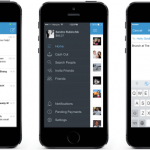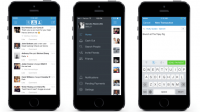After Being Sued By Tinder, Can This Threesomes App Survive A Rebrand?
Dating app Tinder is going after fledgling startup 3nder, an app that facilitates threesomes, in a lawsuit that claims 3nder is benefiting from the similarity between the two companies’ names. Not only is Tinder suing 3nder, they’re also suing its founder Dimo Trifonov as well, a move that could defund his whole operation.
Trifonov doesn’t plan on going quietly. In May 3nder launched a campaign, titled “Tinder sucks my socks,” in which it encouraged 3nder users to send their dirty socks to Tinder HQ. But with comparatively little financial wherewithal, 3nder has decided to both rebrand and rename its app in the hopes that Tinder will pull back from its suit.
Diminished Brand Equity
It’s not an easy decision to either rebrand or rename a company. Renaming means previously built up brand equity is lost—you’re starting from scratch. While 3nder is a young company, it has had a good deal of media luck. When the app was still just a landing page, it drew the gaze of reporters in both the U.K., where 3nder is based, and the U.S., thanks to the salacious nature of its product.
But the name 3nder itself may have also helped it garner attention. Not only because it sounds like Tinder (though 3nder says it’s pronounced “three-ender,” most people call it “thrinder”), mind you, but also because of its use of millennial parlance. In the 21st century, “-ndr” has become a common dating app suffix (examples include: Grindr, Blendr, Binder, Bristlr). Add the 3 and “3nder” implies a dating app for three people. It is comically obvious and easy to remember. It’s the kind of name that sticks in your brain.
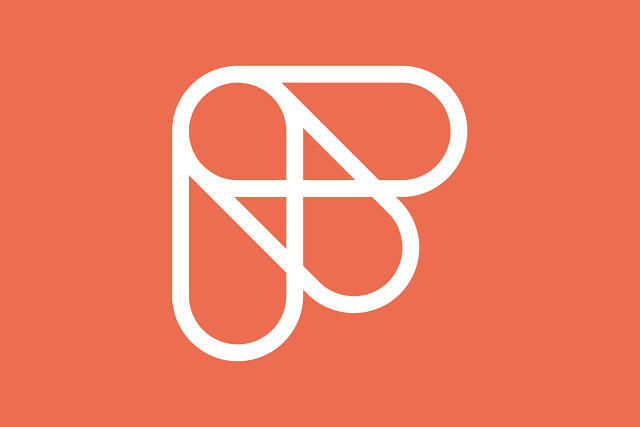
The app is being rebranded as “Feeld,” a far more abstract title. The app’s color scheme will remain as is, the same two-toned orange. The logo, three overlapping pill shaped figures, heavily resembles Airbnb’s emblem, which was refreshed in 2014. (It’s also worth noting that Airbnb’s logo has been called out for its uncanny likeness to genitalia).
Though the change may sate Tinder, it could reduce 3nder’s momentum attracting new users. 1.57 million people have downloaded 3nder since its launch two years ago on the iPhone, according to the company. It says another 78,000 have been waiting for the Android release, which will launch today under the new name. 3nder has not done much marketing, but instead relies on media coverage and word- of-mouth traction. With this rebrand, it will likely have to change course and start putting more money toward consumer acquisition.
An Accidental Founder
When Trifonov launched 3nder, he never imagined that the app would become a business, let alone the subject of a legal battle with a company that “owns your entire dating life.”
Sitting outside of London’s Barbican, watching water spout from a trio of fountains, Trifonov explains to me over the phone what it’s like to be at the center of a lawsuit with one of the biggest players in the game. “3nder was just a social experiment,” says Trifonov. “I never launched it as ‘okay, now I’m going to start a business.’”
3nder was conceived of as a love letter to his girlfriend, after she opened up to him about the shame she felt for having feelings for other people—and for women in particular. “When I found out, I wasn’t angry with her, I was angry that she felt bad about it,”said Trifonov. “The app was a way to show her that there are many people like her and like me”—a couple that wants to expand their relationship beyond monogamy.
Once the idea for the app was established, Trifonov, a designer by trade, bought a domain name along with a $15 template, quickly mocked up a teaser page, and let it loose on the web. Days later, click-hungry media outlets were buzzing about “Tinder for threesomes,” as the press dubbed it. “That’s amazing,” he says, recalling the awe he felt over his idea’s reception. “People are talking about something that I made over the weekend, without even having an app! It was just a teaser page.”
When he saw the excitement around the teaser page he had set up, he felt like he really had to build the product. That meant hiring developers and finding investors. Trifonov was able obtain a seed investment from the U.K.-based group Haatch (not to be confused with the IAC incubator Hatch Labs, where Tinder was born). Though Haatch is no longer involved with 3nder, the company has since drawn funding from angel investors and hired a team of 10 people.

A Safe(r) Space?
The app’s main appeal is that it ostensibly gives users the opportunity to be sexually curious without penalty. By focusing on threesomes, 3nder has attracted a user base that is both sexually curious and open to same-sex encounters. People may feel a little more free to explore their less-mainstream interests on 3nder than on Tinder, because 3nder’s audience is tailored to more specific sexual activities. Because Tinder attracts people who may or may not approve of non-status-quo sexual appetites, a user can’t always be so certain that it’s safe to be open about not adhering to heteronormative relationship standards.
Tinder has had difficulty creating a safe space for people who are neither cisgender nor straight. It’s been been called out as “an atrocious app for queer women” because even if a woman identifies as being only interested in women in her profile, she may still receive messages (read: dick pics) from men. By contrast, users can’t send nude photos on 3nder.
Tinder doesn’t offer a way for users to identify as transgender or non-binary. In turn, some transgender users have reported being banned from the dating app for being trans.
In this way, Tinder is geared toward a more traditional dating market wherein a platform introduces two people so they can either date, hook up, or form a long-term relationship. But 3nder is homing in on a more unconventional form of dating that allows people to both explore their own identity as well as experience different kinds of sexual activities and lifestyles, one-on-one or in a group. There is growing anecdotal evidence that there is a bubbling demand for a platform that enables these kind of encounters.
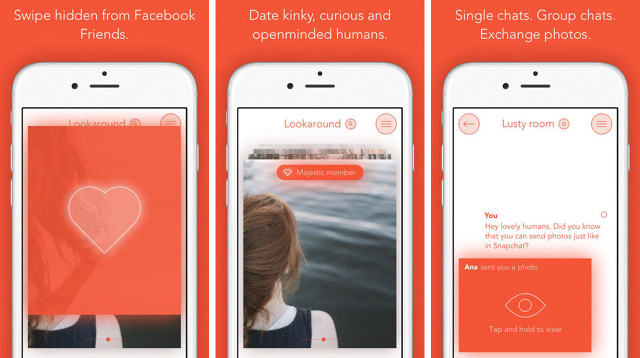
A survey released in March shows that Generation Z is is less tethered to gender binaries than millennials, according to J Walter Thompson Intelligence. Young people are rejecting gender norms and the term “gender fluidity” is increasingly pushing into the public lexicon, NPR reports. American’s are also experimenting more, with an increasing percentage reporting same-sex play, according to New York Magazine’s “Science of Us” vertical.
3nder, soon to be Feeld, intentionally or not, is narrowing in on this culture of sexual and identity exploration. Rather than just being a dating app (or threesome app, as it were) 3nder may be providing a space for people who are figuring things out. It’s even an alternative to apps geared specifically for gay and lesbian audiences, like Grindr or Her. (Roughly 78% of 3nder’s users are straight, compared with 92% of women and 95% of men in the U.S, according to the CDC.)
Though 3nder claims to be all-encompassing, welcoming of non-binary genders and various sexual orientations, it has certainly had its own missteps along the way. Early on, the app listed gender identifiers like female, male, and transgender under its “sexual orientation” category. Sexual orientation indicates which genders a person is attracted to in relation to their own gender, while gender identity reflects how a person labels their own gender. 3nder has since rectified this part of its onboarding process.
Why Sue 3nder Now?
Tinder is probably not blind to this new wave of sexual experimentation, even though evidence of its existence is mostly anecdotal. Tinder’s own internal data might even reflect the shift. Last year, Wired reported that 42% of Tinder users are already in a relationship—the same percentage of couples that are on 3nder. Regardless, Tinder has voiced its desire to be of service to all types of people. Last year, during Fast Company’s FCLA event, Tinder CEO Sean Rad told reporter Austin Carr, “Tinder’s not one thing. It’s about all different things—hookups, long-term relationships, friendships—there’s a massive audience on Tinder and there are a massive number of connections that happen, so our focus isn’t on one particular type of connection.” This year, the company has taken several strides toward tailoring itself for different types of experiences. In June, Rad said it would offer users ways of identifying themselves on the app beyond male and female. And just a couple of weeks ago the company launched Tinder Social, a way for groups of people to match up and meet up.
With its eye focused on growing its platform beyond one-on-one connections, Tinder may now see 3nder as a potential threat. That would certainly explain why it took nearly two years to throw a suit at the threesome app. Fast Company reached out to Tinder for this story, but never got a response.
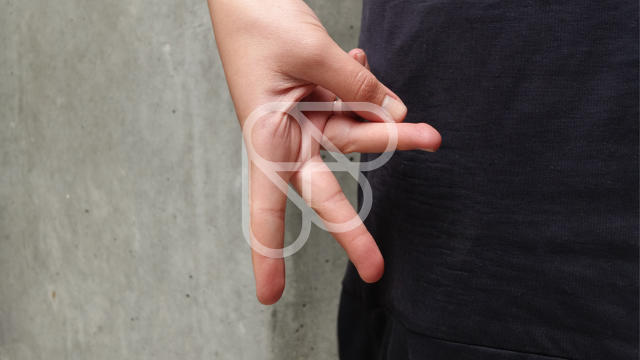
Though 3nder has just a fraction of Tinder’s audience (Tinder has an estimated 50 million monthly users), the threesome app does have a significant chunk of user who pay for extra features. Last year, 3nder launched paid privacy features that prevent users’ Facebook friend’s from seeing them on the app. Now roughly 15% of 3nder’s monthly active users pay for the service. By comparison, Tinder has over a million users who pay for Tinder Plus, which while more than 3nder’s paying user population, makes up for a smaller percentage of Tinder’s overall business. Investors have taken note. Tinder’s parent company Match Group recently fielded investor disappointment for not substantially growing its paid user base in the second quarter of 2016.
Tinder’s difficulty in racking up paid users might be due to the fact that, while Match Group fosters some of the biggest dating brands, the online dating field is fairly congested. Tinder exists among a large pool of competitors including Happen, Bumble, Grindr, Daatch, eHarmony, Ashley Madison, Wing Ma’am, Scruff, Coffee Meets Bagel, 3nder, and Hinge. One less dating app in the field improves everyone’s chances. More importantly, culling 3nder from the herd might also attract more people to Tinder for its newly launched social component.
Now What?
3nder has submitted its rebrand to Tinder and is awaiting a response. In the meantime, the threesome company is slowly losing money to its legal battle with Tinder. “We have a cash flow that we can use to defend ourselves,” says Trifonov. But even if it wins the suit, 3nder/Feeld has lost money. To recoup expenses it would have to file a counter suit, which would mean spending more money on legal fees. “The bad thing is that we could have invested it in product development,” Trifonov says.
And you’re not likely to see a big outpouring of support from all of 3nder’s community, because by jumping to its defense, members would essentially be publicly announcing that they’re at least interested in having a threesome. While 3nder users may be comfortable airing their various desires among like-minded folk, many of them they may not be inclined to broadcast their personal inclinations outside the walls of an app.
While Tinder puts a financial dent in 3nder’s business, Trifonov sees the rebrand as an opportunity to redefine his company.
“The threesome app was a cheap marketing trick that captured media attention,” he says. “We are actually a lot more than a threesome app.” He believes the rebrand will allow the company to focus more on developing its community. For instance, with the launch of the new brand, the company is also releasing a digital wallpaper that can be put on computer home screen, social media header, or phone screen to indicate they’re part of the Feeld community—only for users who feel comfortable being that public about their preferences, of course. The point of this wallpaper is to find ways to expand 3nder/Feeld’s ability to make real-life connections (like if two people notice the wallpaper on each other’s phones at a bar), so its brand name can live on even if the app itself dies over the course of this lawsuit.
The company is exploring other ways to strengthen 3nder/Feeld’s brand offline. In Feeld’s redesign deck, there’s a picture of a storefront and a caption that reads “We are planning a physical space where installations, talks on sexuality and human nature, showcases of new communication and pleasure technology will take place. Feeld will offer an opportunity for people to come and explore a world where a conversation on, and curiosity for sex is normal and positive.” After all, though its users may not feel comfortable outing themselves as Feeld frequenters publicly, online, many of them may feel safer attending private in-person events.
Trifonov says that 3nder’s early success created a small community around sexual openness, a community he thinks is growing. Even if Tinder is able to shut his company down, he doesn’t believe it will kill off the demand for a product like 3nder. Furthermore, while he agrees Tinder Social may try and scoop up 3nder/Feeld users, he thinks Tinder’s product is too broad and doesn’t foster a safe space for exploration as authentically as 3nder does.
“It’s a community of people that are supporting each other and supporting their openness…[Tinder] will never be able to capture this in their product,” Trifonov says.
3nder is ditching its threesome-oriented name in favor of a more flexible moniker.

Feeld, formerly 3nder, is launching on Android in the Google Play Store.
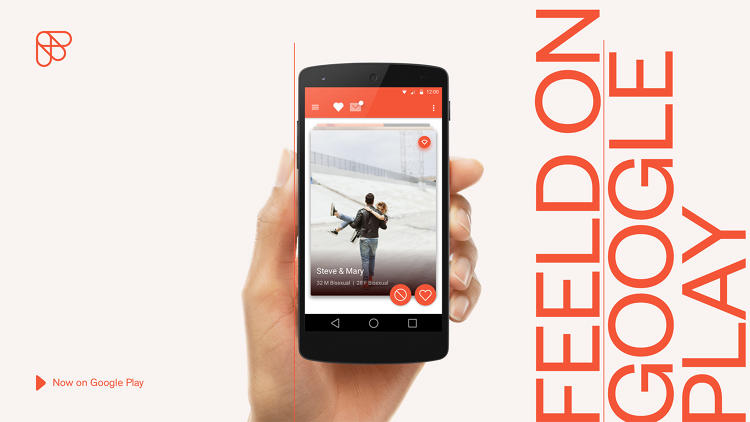
An example of the device background that could indicate someone is part of the Feeld community.
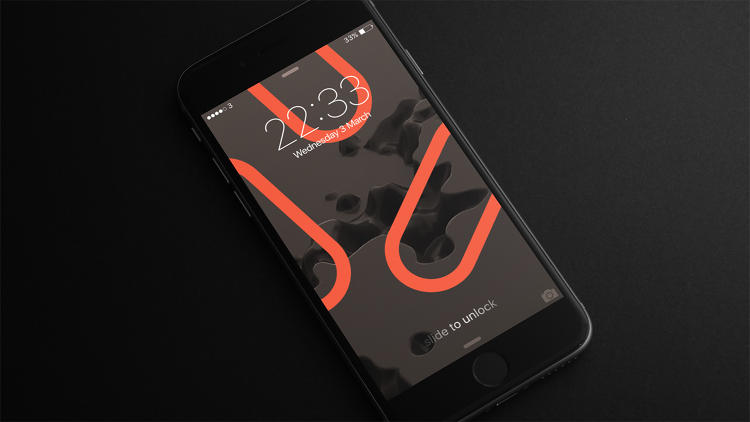
Fingers are the inspiration for the logo (which we can’t help but notice bears a striking resemblance to the Airbnb logo).
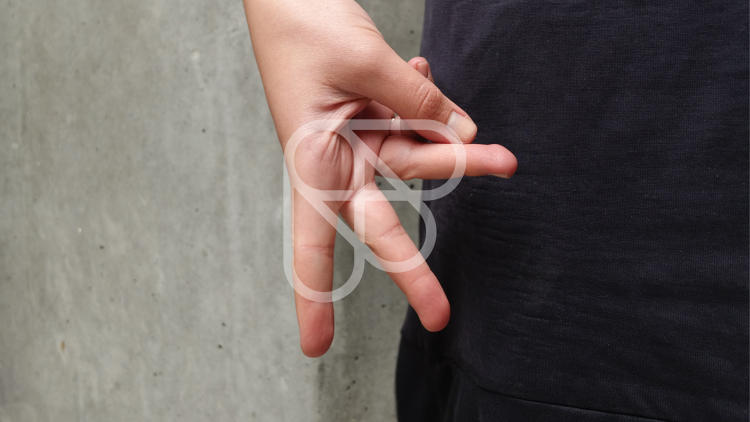
A potential store front where Feeld might host talks or meetups.
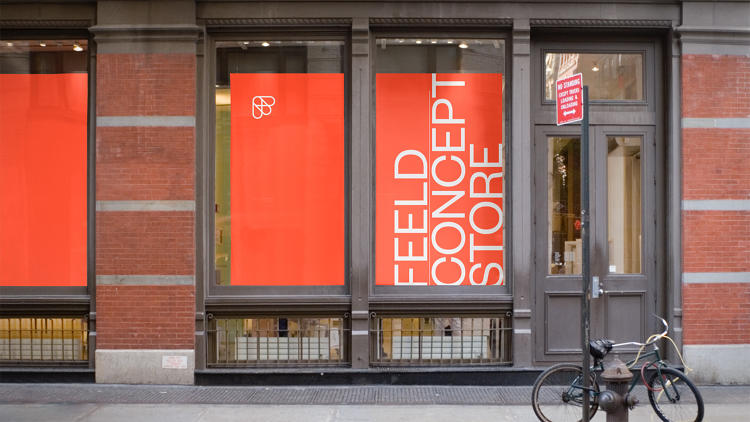
Visual inspiration for the new Feeld brand.

Fast Company , Read Full Story
(76)


